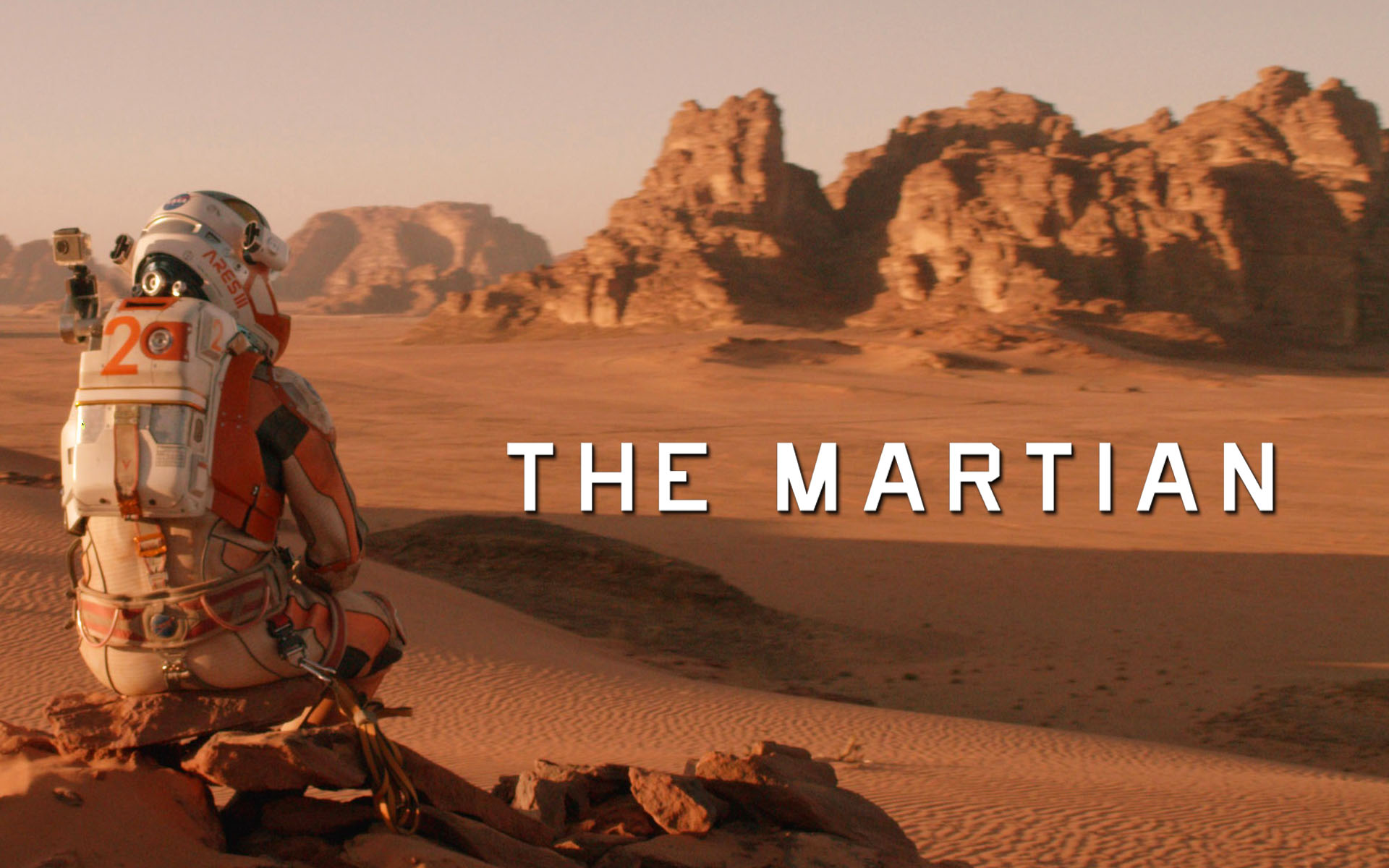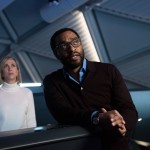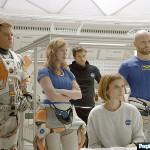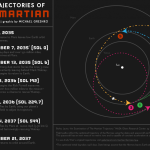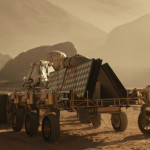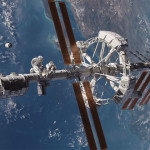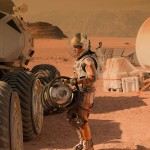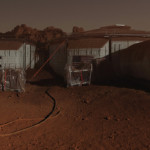Like Gravity before it, Ridley Scott‘s The Martian is a space drama based on a plausible scenario rather than heading into the realms of fantasy, but a massive suspension of disbelief element lies at the heart of the drama. The conceit runs thus:
A cock-up results in one astronaut being stranded on Mars after the rest of the crew abandoned the planet in a raging storm, presuming him to be dead. Would NASA really attempt an entire mission to rescue one man? Would they turn around the spaceship on its way back to earth in an unlikely attempt to pick him up through a highly unlikely in-space rendezvous against all odds, whatever Congress and public opinion might think?
Arguably in real life there may be many hands wrung and shoulders shrugged but no rescue mission, leaving team botanist Mark Watney to die peacefully on the red planet, but leaving aside budget restrictions and many other improbables, what is left is a highly enjoyable and for the most part easy-going drama. The mood is kept light and levity maintained through deft use of music, including Abba‘s Waterloo and Donna Summer‘s Hot Stuff (a running gag about the musical tastes of the ship’s commander.)
Meanwhile, back on earth things are getting fraught. NASA director Teddy Sanders (AKA Jeff Daniels) vetoes informing the crew heading to earth that Watney is alive – at least until the press get wind of the story, such that denials would be pointless – at which point they break the news to the other crew with the rejoinder that Watney does not blame them.
The next question is what to do and how to recover their man on Mars. The wrangling on earth makes for a counterpoint to Watney’s practical struggle to breath, feed himself, stay within sensible tolerances of temperature, thereby to live to fight another day.
On earth, a supply ship is prepared in record time but too quickly… alas. However, a co-venture with the Chinese is an option, though the real breakthrough comes from a young scientist (Donald Glover) calculating that the earthbound Hermes can slingshot around the earth and collect Watney en route. Once this mission is accepted, the nature of the movie changes to rescue mode, losing some of the welcome ambiguity and maybe some of the interest too. You don’t need me to tell you that the rescue mission is ultimately successful, though, like Gravity, has plenty of hiccups along the way – though none of the 2001/Interstellar multidimensional philosophical paradoxes – or indeed some of the evil beasts from past Ridley Scott movies.
Disregarding that element, the most interesting aspects of the movie are how one man deals with the prospect of being alone on a planet millions of miles from home, and in that context how he retains his mind and purpose. For Watney himself, survival instinct vies with a generally good-natured view of life. Matt Damon plays him with a pinch of grit and fortitude, but ample reserves of humour, plus a touch of pride that he will go down in history as the first man, for example, to cultivate potatoes on a planet too cold and dry to maintain vegetation.
He could be cursing life and the commander who left him behind, but that is not the Watney style. By some miracle he survives, establishes communication with base, eventually real time conversations by hacking the computer system, maintaining a subsistence diet – until he blows up the airlock and cuts his chances of longevity by months – though even that is not the end of the world. Quite a resourceful chap is Mr Watney, certainly not one to give up. NASA survival training must be hot!
That said, the final reunification of Watney with the crew of Aries 4 stretches science well beyond snapping point, then some, though it is essential to the plot and quite exciting. Ah but it’s alright because NASA says the maths all checks out, without providing the proof – a minor glitch, I’m sure
Also worthy of note are the visuals – especially the sets and a recreation of Mars in a very red part of Jordan, a world heritage site called Wadi Rum (plus a few red filters on the camera.) At every point the movie looks the real deal, right down to the vicious Martian storms. Equally, the science, while notional, was supplemented by senior help from NASA. This provides a degree of authority and authenticity to the finished product, such that you can look upon the missions as credible and not the stuff of science fiction.
In short, view this movie as light entertainment, to be taken at face value, and you will go home quite happy. If you expect greater depth you may be disappointed, but since Interstellar was for me ultimately a failure, sticking to Andy Reid‘s novel is no bad thing.

